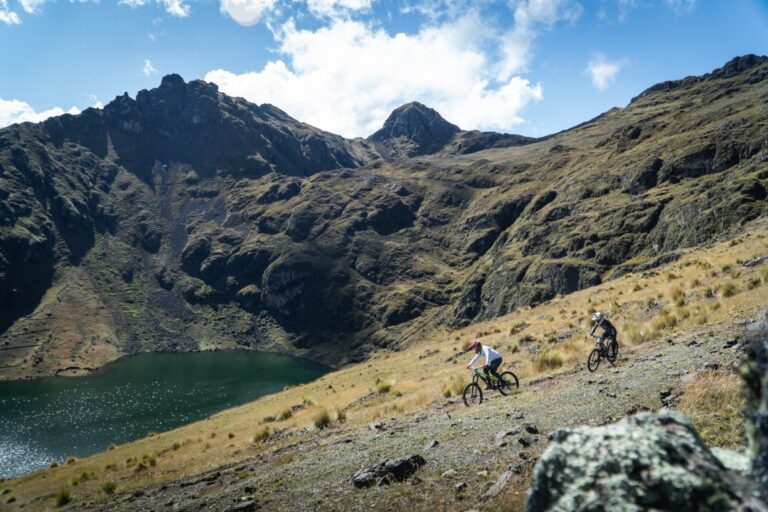
HUMAN humans Virus HUMANITY
Throughout history, humanity has faced numerous crises that have shaped the course of civilization. Among the many challenges, two stand out for their profound impact: the Black Death in the past and climate change in the present and foreseeable future. These crises not only threatened the survival of millions but also catalyzed significant societal transformations. Understanding these events is crucial to navigating current and future challenges.
The Black Death: Humanity’s Past Crisis
The Black Death, which swept through Europe between 1347 and 1351, was one of the deadliest pandemics in human history. It is estimated that the plague killed between 75 to 200 million people, reducing the population of Europe by about 30-60%. This crisis, caused by the bacterium Yersinia pestis and transmitted through fleas living on rats, had several profound effects on medieval society.
Impact on Population and Economy
The massive death toll led to a significant labor shortage, which in turn disrupted agricultural and economic activities. Fields lay fallow, and food production plummeted, leading to widespread famine and further mortality. However, the drastic reduction in population also led to economic changes. Labor became scarce and valuable, empowering surviving workers to demand higher wages and better working conditions. This shift contributed to the gradual erosion of the feudal system, where serfs were bound to the land and subject to the will of the nobility.
Social and Cultural Consequences
The social fabric of medieval Europe was also irrevocably altered. The Black Death exposed the vulnerability of the existing social order and the Church’s inability to provide relief or explanations for the calamity. This led to a decline in the Church’s influence and the rise of secularism and humanism, which would later fuel the Renaissance. Moreover, the pervasive death and suffering caused a deep existential crisis, leading to changes in art, literature, and collective consciousness, with a greater focus on mortality and the human condition.
Climate Change: The Crisis of the Present and Future
In the modern era, climate change poses the greatest threat to humanity. Unlike the sudden and devastating impact of the Black Death, climate change is a slow-moving crisis with long-term consequences that affect every aspect of life on Earth. Driven by human activities, particularly the burning of fossil fuels and deforestation, climate change is causing global temperatures to rise, resulting in widespread environmental, economic, and social disruptions.
Environmental Impact
The environmental effects of climate change are already evident. Melting polar ice caps and glaciers are contributing to rising sea levels, which threaten to inundate coastal cities and displace millions of people. Extreme weather events, such as hurricanes, heatwaves, and wildfires, are becoming more frequent and severe, causing widespread destruction and loss of life. Additionally, changes in temperature and precipitation patterns are disrupting ecosystems and biodiversity, leading to the extinction of species and the collapse of natural habitats.
Economic and Social Consequences
The economic impact of climate change is substantial. Agriculture, which is highly dependent on climate conditions, is facing unprecedented challenges. Prolonged droughts, altered growing seasons, and extreme weather events are reducing crop yields and threatening food security. In turn, this can lead to higher food prices, economic instability, and increased poverty and hunger.
Socially, climate change exacerbates existing inequalities. Vulnerable populations, particularly in developing countries, are disproportionately affected by climate-related disasters. These communities often lack the resources to adapt or recover from such events, leading to increased displacement, migration, and conflict over dwindling resources. Moreover, the health impacts of climate change, such as heat-related illnesses and the spread of vector-borne diseases, pose significant public health challenges.
Political and Global Responses
Addressing climate change requires unprecedented global cooperation. The Paris Agreement, adopted in 2015, represents a significant step towards collective action, aiming to limit global warming to well below 2 degrees Celsius above pre-industrial levels. However, achieving these targets requires substantial reductions in greenhouse gas emissions and a transition to sustainable energy sources. This necessitates political will, technological innovation, and societal changes at all levels.
Lessons from History: Adapting to Crises
The historical response to the Black Death demonstrates humanity’s capacity for adaptation and resilience in the face of overwhelming challenges. Despite the initial devastation, the aftermath of the plague saw significant social, economic, and technological advancements. Similarly, confronting climate change today requires leveraging these historical lessons to foster resilience and drive transformative change.
Technological Innovation and Adaptation
The post-Black Death era witnessed remarkable technological advancements that reshaped medieval society. Innovations in agriculture, such as the heavy plow and three-field system, improved productivity and food security. These technological shifts were crucial in rebuilding economies and stabilizing societies.
In the context of climate change, technological innovation is equally vital. Renewable energy sources like solar, wind, and hydroelectric power present viable alternatives to fossil fuels. Advances in battery storage and smart grid technology can enhance energy efficiency and reliability. Additionally, innovations in agriculture, such as precision farming and drought-resistant crops, can mitigate the adverse effects of climate change on food production.
Social and Political Reforms
The social upheaval caused by the Black Death led to significant political and social reforms. The labor shortages empowered the working class, leading to demands for better wages and working conditions. This shift contributed to the decline of feudalism and the rise of more egalitarian social structures.
Addressing climate change similarly requires comprehensive social and political reforms. Governments must implement policies that promote sustainability and reduce greenhouse gas emissions. This includes investing in renewable energy, enforcing stricter environmental regulations, and providing incentives for sustainable practices. Socially, there needs to be a focus on equity and justice, ensuring that vulnerable communities receive the support needed to adapt to climate impacts.
Global Cooperation and Governance
The response to the Black Death was largely localized, with varying degrees of success across different regions. However, the global nature of climate change necessitates a coordinated international response. The Paris Agreement is a significant step towards such cooperation, but more robust mechanisms are needed to ensure compliance and accountability.
Strengthening global governance structures to address climate change involves enhancing the role of international organizations, fostering collaboration between nations, and mobilizing resources for climate adaptation and mitigation. This includes financial support for developing countries, which are often the most affected by climate change despite contributing the least to its causes.
Public Awareness and Education
Public perception and understanding of crises play a crucial role in shaping responses. During the Black Death, misinformation and fear often exacerbated the crisis. In contrast, contemporary society has access to advanced communication technologies that can disseminate accurate information and raise awareness about climate change.
Education and public awareness campaigns are essential for fostering a culture of sustainability. Informing citizens about the causes and consequences of climate change, as well as the steps they can take to reduce their carbon footprint, can drive collective action. Empowering individuals and communities with knowledge and resources is key to building a resilient society capable of addressing environmental challenges.
The Role of Individual and Collective Action
While governments and international bodies play critical roles in addressing climate change, individual and collective actions are equally important. The collective response to the Black Death included community-based efforts to care for the sick and bury the dead, demonstrating the power of collective action in times of crisis.
Similarly, combating climate change requires active participation from individuals, communities, and businesses. Simple actions such as reducing energy consumption, recycling, supporting sustainable products, and advocating for environmental policies can collectively make a significant impact. Community initiatives, such as local sustainability projects and grassroots movements, can drive change from the ground up and foster a sense of shared responsibility.
Conclusion
The greatest crises faced by humanity, both past and present, reveal the profound challenges and transformative opportunities that arise in times of adversity. The Black Death reshaped medieval society, leading to significant social, economic, and technological changes. Today, climate change poses an even more complex and far-reaching threat, requiring a multifaceted and coordinated global response.
By learning from historical crises, embracing technological innovation, enacting social and political reforms, and fostering global cooperation, humanity can navigate the challenges of climate change. Public awareness, education, and individual actions also play crucial roles in building a sustainable and resilient future. Just as humanity emerged from the devastation of the Black Death stronger and more advanced, we have the potential to overcome the climate crisis and create a more sustainable, equitable, and prosperous world for future generations.
By: SIDHARTHA MISHRA
Write and Win: Participate in Creative writing Contest & International Essay Contest and win fabulous prizes.


